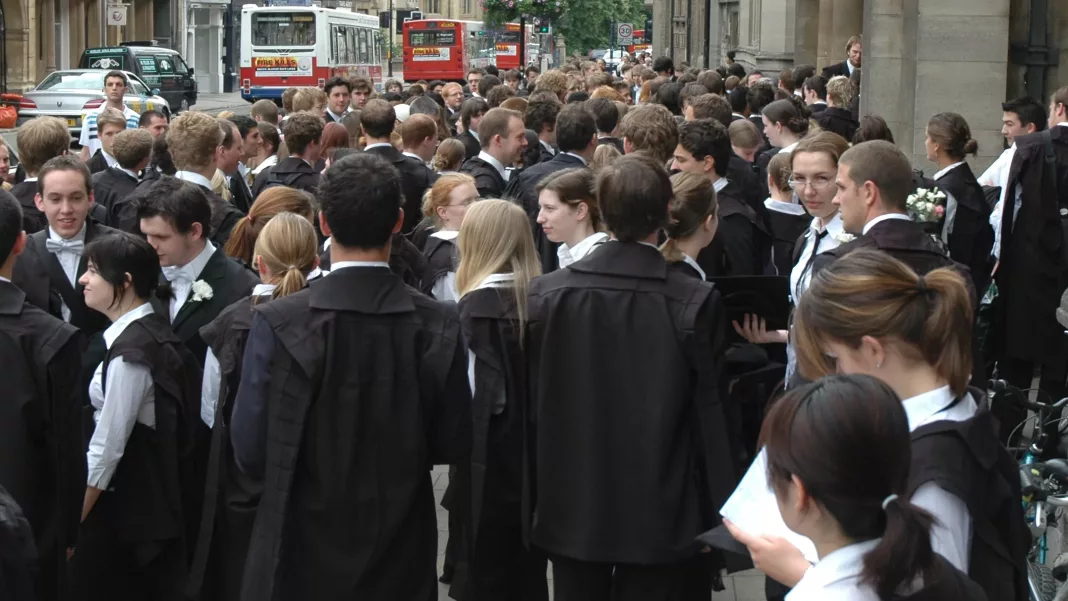The first time I sat down to a formal dinner at Oxford I was bamboozled. Which fork… which knife… do I make my way outside-in, or inside-out? I was informed quite promptly by my tutor to assuredly not eat before the diners in front and to my sides had their meals in front of them. Although my college keeps it to a minimum, I know if I had to listen to five minutes of Latin at that point I would have been utterly dumbfounded. Alas, given I would have to wait until my ten minutes in the Sheldonian the following week to be introduced to incomprehensible Latin prose, I proceeded to eat my meal feeling amused, or pleasantly beguiled perhaps, by the gimmick of it all.
What baffled me as my time in Oxford continued, however, was that the ensemble of traditions Oxford had to offer were by no means a gimmick. I’m not pleading ignorance to the over 900 years of history to which these traditions owe their existence, but I was, and I still am, surprised by the sincerity, importance and integrity of these rituals to the university today. Dressed in a funny gown with a carnation pinned to my chest as I prepared to bleed onto my exam page, I struggled to take myself seriously.
Hilarious as some of the absurd, quirky and wonderful traditions Oxford has to offer are, their retention in Oxford today is a potentially unsettling reminder of what Oxford used to represent, which diametrically opposes the features of Oxford today that drew so many of us here.
On the one hand, Oxford is at the forefront of research and innovation, with swathes of resources both mental and financial supporting it. On the other, Oxford is a hub of discussion, progress, radical thought and critical theory. In the best way possible, Oxford certainly ascribes to what social conservatives associate with ‘woke culture’, if such is to represent self-reflexive thought about the socially constructed nature of structures that stratify individuals, or the critical questioning of existing institutions. Although there is no doubt significant progress to be made, discourse in student activist groups, overflowing attendance to feminist theory lectures, and the hiring of new critical theory scholars reflect the ‘left wing’, if you will, political and social consciousness that has developed within the university.
It is this consciousness that comes into head-on conflict with the culture and thought immortalised in Oxford’s traditions. Oxford was once a bastion of the British class system. It may not be a bastion as such today, but it is certainly still, symbolically or in the minds of some at least, an edifice of class, racial and gender discrimination as well as elitism. Glaring examples emerge by pointing to the Oxford Union and its far from accessible £300 joining fee, or otherwise Oriel College’s stone memorialisation of the godfather of the South African Apartheid. More covert examples are seen in the juxtaposition between the University’s extortionate wealth and the deprivation in local Oxfordshire, or the University and colleges’ failure to ensure not only an Oxford education, but participation in the university at large (joining sports clubs and attending balls come to mind) are accessible. The limited implementation of the foundation year scheme, dwindling number of Opportunity Oxford admissions, and the stigma directed towards students who’ve rusticated for ‘just not being able to cut it’, reflect further ways elitism is an active force. Chance encounters with those individuals, be it deans, principals or students, who very much choose to propagate the rhetoric that Oxford is indeed, elite, reveal that even in the university community, members are still seeking to uphold what Oxford once was in the face of the new.
So amidst the spires, a struggle seems to be underway. There are two worlds at knuckleheads, grappling over Oxford’s identity. Whether these worlds can be reconciled whilst tradition and history are so pertinent to life in Oxford is an important question. I am unsure how much longer the university will be able to straddle the gaping divide between its past and its future.
Do not take me as arguing for the tradition’s demolition. Tradition is important. A legacy emphasising Oxford’s place as one of the oldest educational institutions in the world generates a spirit that worships and celebrates learning. There is tremendous value in this spirit. It motivates us to rethink and reconsider relics of the past, be it institutions or processes, to cohere with the new.
But I am dubious about the outcome of this internal struggle. As I have already mentioned, Oxford was a bastion of the English class system, and the English class system is very much alive and well. All I can hope is that reflexive and critical recharacterization of Oxford’s values will one day be sufficient to compete and confront a history of exclusion and elitism. The onus of reconciliation is on the present.


